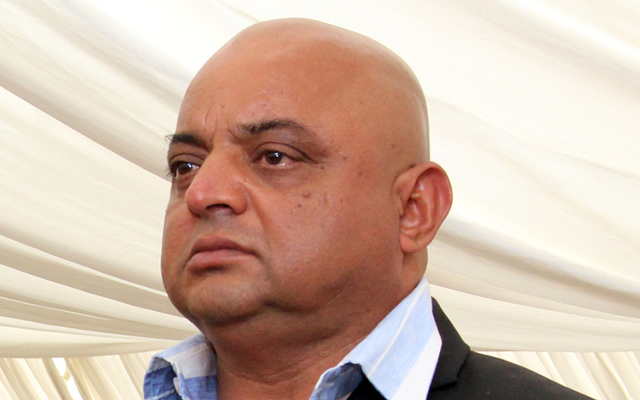Bulawayo needs more township enterprises

Prosper Ndlovu, Business Editor
The Bulawayo City Council says many investors are keen on setting up businesses, particularly in the services sector but the major stumbling block is lack of serviced stands.
The Town Clerk, Mr Christopher Dube said the city was facing a serious shortage of serviced industrial stands.
He said as such the council was failing to meet demand and most of the time was relying on surrendered stands.
“The challenge to council therefore is to ensure the availability of serviced stands if the city is to realise growth and development,” said Mr Dube.
Given the high unemployment rates in the city following the demise of the manufacturing sector, which used to provide jobs for thousands of people, there has been enormous growth of small to medium enterprises (SMEs), which is highly informal. It is a fact that scores of skilled workers who lost their jobs when most companies closed either skipped the borders in search of greener pastures or went on to open backyard industries in their homes where they play hide and seek with authorities.
While reviving closed factories is being worked on by Government and big corporates, suggestions have been made to aggressively champion township entrepreneurship, which is deemed to be part of the broader economic therapy the world over. The wider meaning of this is that those backyard entrepreneurs in the surbubs should be regarded as resilience heroes and not villains to be harassed as they contribute to sustaining the city’s economy.
These entrepreneurs should be given all the necessary support, particularly by council and its partners, first and foremost, through provision of necessary infrastructure to work from and through crafting of enhancing by-laws and affordable rates.
The proposed $12 million shopping complex investment in Cowdray Park suburb by Mr Raj Modi’s Sai Enterprises, dovetails with this township business model, which is premised on decentralising services to communities. For a suburb like Cowdray Park, which has seen massive expansion over the years and is arguably the biggest in Bulawayo at the moment, there is a huge gap in terms of provision of key services.
At the moment hordes of consumers are forced to walk long distances to shopping centres or commute to the city centre to access basic services such as shopping, entertainment, banking, medical services and Internet.
Sai Enterprises plans to build a complex on a 12 000 square metre piece of land. The complex will comprise a main supermarket, departmental store, specialty shops, entertainment area and cinema, banks and a medical service centre, among other utilities.
Mr Thabang Nare, who has a punch in SMEs growth in Bulawayo says, developing township businesses is a trendy model across the globe that is hinged on decentralising services to facilitate growth.
“People should stop coming to the city centre for things they can do eKasi. Mr Modi is doing a good thing and he must make his complex attractive as this model also promotes the culture of buying local,” said Mr Nare.
“We need these complexes all over Bulawayo. BCC can also go into private public partnerships like what it intends to do on the Egodini project to broaden revenue base. City councils across the world own shopping complexes.”
Vice President Emmerson Mnangagwa who was the guest of honour at the ground breaking ceremony also commended Mr Modi for continuing to invest in the country.
“While most companies are closing shop, citing economic challenges, Sai Enterprises is forging ahead with a major investment here in Cowdray Park with an initial injection of $10 million towards construction of the shopping complex.
“All unskilled labour will be sourced here while only those jobs requiring specialisation will be given on merit.”
Network creation and linkages are crucial in these township businesses whose survival depends on support from each other. To that end, Modi’s investment is commendable as it speaks to the need to establish not just warehousing arrangements but also win-win joint ventures particularly with the manufacturing and agricultural sectors for employment creation and exports. Such investments also offer a market to local farm produce and become a showcase centre for products that are manufactured by small scale businesses.
According to Mr Modi completion of works on the site is expected by August 2018, with the first phase targeted to be ready by November 2017.
During construction of the shopping mall, an estimated 1 000 jobs will be created while in excess of 300 employment opportunities will be generated once the complex becomes operational.
Sai Enterprises, which started in Bulawayo from humble beginnings about 35 years ago, is diversifying into areas such as liquor production, school exercise books manufacturing as well as water bottling.
The township business model has worked well in South Africa where it is credited for sustaining livelihoods. In Bulawayo places such as Bellevue and Sekusile Shopping Centres are some of the thriving township businesses. The building of shopping malls such as Entumbane and Nkulumane, while it is a welcome move, has regrettably not helped much due to exorbitant rentals.
With a vibrant local economy, forums such as the Zimbabwe International Trade Fair come in handy in terms of marketing the city as an investment destination of choice. Even the twinning relations between the City of Bulawayo and Ethekwini from South Africa, for instance, would leverage growth of small businesses as well as promote tourism.
There is, therefore, a need to expedite the re-development of Egodini bus terminus, which is expected to cost approximately $60 million. This terminus is the hub of SMEs and township entrepreneurs and the project is expected to create thousands of jobs downstream.
City fathers need to do more to enhance ease of doing business at local level. It is encouraging to note that the city is already streamlining several procedures to cut on bureaucracy.











Comments